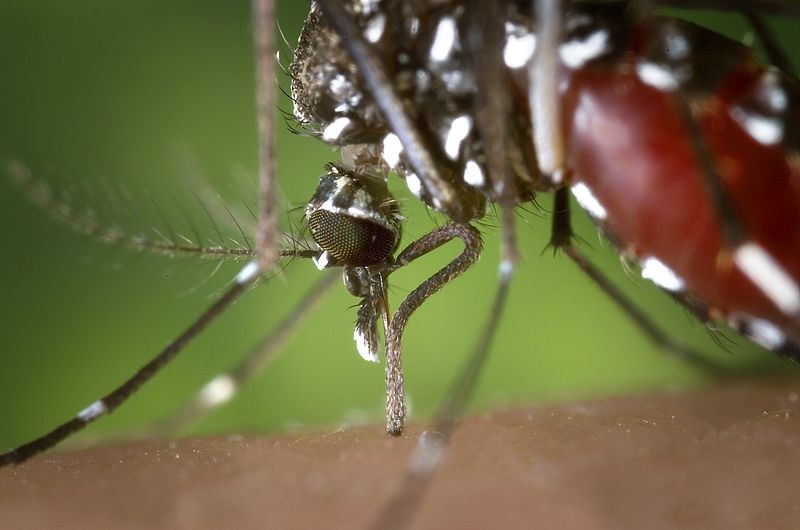West Nile virus has been found in mosquitoes in two more southern Maine communities, Biddeford and Scarborough, Maine State Epidemiologist Dr. Stephen Sears said Thursday.
The confirmed positive results came from routine surveillance of monitoring pools in northern York County and southern Cumberland County. The terrain at the two new sites is similar to where West Nile was found earlier in Gorham and Standish, he said.
“We’ll keep finding mosquitoes … as we continue to test,” said Sears, who was not surprised that more West Nile virus had been discovered. He predicted last week that more cases probably would be found before mosquito season ends with the first hard frosts — generally between Oct. 1 and 15.
He reiterated the state’s message about avoiding mosquito bites: “The biggest point is awareness,” he said. “And … prevention measures.”
The state is also closely monitoring Eastern equine encephalitis, which is more serious than West Nile.
EEE was found in mosquitoes in Lebanon a week ago, marking the first detected case in the state this year. EEE killed 30 pheasants at a farm in that town. West Nile has been detected in Lebanon as well, and five Maine communities in all.
There have been no instances of either virus infecting humans in Maine this summer, but both have swept through Connecticut, Massachusetts, New Hampshire and Vermont. Two more human cases of mosquito-borne illness — one West Nile and one EEE — were confirmed in Massachusetts on Thursday.
Maine officials have urged residents to avoid going outdoors from dusk until dawn, if possible. If activities take people outside after dark, it is best to wear loose-fitting long-sleeved shirts and pants. For extra protection, insect repellents — both herbal and synthetic chemical — can be used.
Mosquitoes are drawn to swampy areas and places that feature standing or stagnant water that provides good habitat for laying eggs and metamorphosis. The insect’s life cycle has four distinct stages: egg, larva, pupa and adult. Adult females lay their eggs in water, and the mosquito spends the first three stages of its life there. Only adult females bite.
West Nile virus can afflict birds, humans and other mammals. Many people who are infected experience no obvious symptoms and might never know they have the virus. Those who develop noticeable illness show symptoms including headache, high fever, altered mental state, tremors, convulsions and, in rare instances, paralysis. The virus also can cause meningitis or encephalitis, and in extreme cases can be fatal.
There is no vaccine for West Nile and no specified treatment. Even so, the two new findings of virus in mosquitoes are not a cause for fear, Sears emphasized, adding that more findings are probable for “another three weeks.”
“It’s supposed to get warmer,” he said. “I don’t see a frost in the near future.”
Staff Writer North Cairn can be contacted at 791-6325 or at:
ncairn@mainetoday.com
Send questions/comments to the editors.


